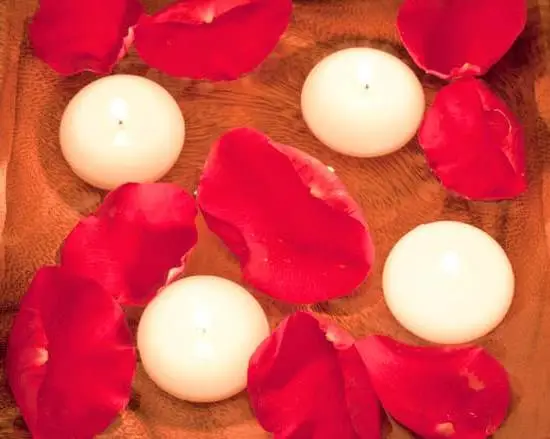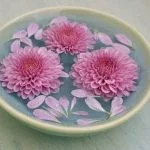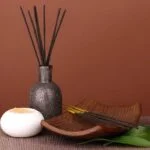Are you looking for a natural way to boost your mood and improve your overall well-being? If so, you may want to consider incorporating the refreshing scent of lemon into your daily routine through aromatherapy. In this article, we will explore the various benefits of using lemon essential oil for aromatherapy, as well as how to make your own natural aromatherapy lemon products at home.
Aromatherapy has been used for centuries as a holistic healing treatment, and lemon essential oil is known for its uplifting and invigorating properties. Whether you are looking to reduce stress and anxiety, improve mental clarity, or simply infuse your space with a fresh and energizing scent, lemon essential oil can be a valuable addition to your self-care regimen.
In the following sections, we will delve into the specific benefits of aromatherapy with lemon essential oil and provide guidance on how to select the right lemons for aromatherapy and extract their oils.
If you are interested in harnessing the power of natural aromatherapy lemon in your daily life, stay tuned as we explore DIY recipes for incorporating lemon essential oil into your beauty and cleaning routines. Additionally, we will cover important safety precautions and tips for using lemon essential oil effectively and responsibly.
Whether you are new to aromatherapy or looking to expand your knowledge on the subject, this article will equip you with all the information you need to start enjoying the benefits of natural aromatherapy with lemon.
Benefits of Aromatherapy With Lemon Essential Oil
When it comes to natural aromatherapy, lemon essential oil is a popular choice due to its refreshing and uplifting scent. But aside from its pleasant fragrance, lemon essential oil also offers a wide range of benefits for both the mind and body.
First and foremost, lemon essential oil is known for its invigorating and energizing properties. When used in aromatherapy, it can help improve mood, reduce stress, and promote mental clarity. In addition, lemon essential oil has antimicrobial and anti-inflammatory properties, making it a great option for cleaning the air in your home and boosting your immune system.
When selecting lemon for aromatherapy purposes, it’s important to choose organic lemons that are free from pesticides and other harmful chemicals. By using organic lemons, you can ensure that the essential oil you extract is pure and free from any unwanted substances.
In terms of extraction methods for lemon essential oil, there are a few options to consider. The most common method is cold-pressing, which involves pressing the rinds of the lemons to extract the oil. Another method is steam distillation, which uses steam to separate the oil from the lemon rinds. Both methods can yield high-quality lemon essential oil that is perfect for aromatherapy use.
| Benefits | Details |
|---|---|
| Improves mood | Lemon essential oil can help improve mood and reduce stress when used in aromatherapy. |
| Antimicrobial properties | The oil has antimicrobial properties that make it ideal for cleaning the air and boosting immunity. |
| Extraction methods | Cold-pressing and steam distillation are two common methods used to extract pure lemon essential oils. |
Selecting the Right Lemon for Aromatherapy
When it comes to selecting the right lemon for aromatherapy, it’s important to choose the highest quality fruit to ensure that you extract the purest essential oil. Lemons that are organically grown and free from pesticides and chemicals are ideal for creating natural aromatherapy products. If possible, consider using lemons from your own garden or sourcing them from local farmers markets to guarantee their freshness and purity.
Characteristics of High-Quality Lemons
High-quality lemons for aromatherapy should have a vibrant yellow color, smooth skin, and a strong citrus scent. When selecting lemons, look for ones that are firm and heavy for their size, as this indicates juiciness and high essential oil content. Avoid using lemons that are discolored, bruised, or showing signs of mold as these may result in an inferior quality essential oil.
Best Practices for Selecting Lemons
To ensure that you are choosing the best lemons for aromatherapy, consider purchasing them directly from reputable organic growers or specialty stores known for their quality produce. Ask about the specific variety of lemon being offered and select those known for their aromatic properties, such as Eureka or Lisbon lemons. Additionally, if you plan to use the lemon zest in your recipes, opt for unwaxed lemons to avoid introducing unwanted chemicals into your homemade products.
Now that you know how to select the right lemons for aromatherapy, let’s move on to exploring the various extraction methods used to create lemon essential oil at home.
Extraction Methods for Lemon Essential Oil
When it comes to harnessing the benefits of lemon essential oil for aromatherapy, the extraction method plays a crucial role in ensuring the quality and potency of the oil. There are several methods used for extracting lemon essential oil, each with its own unique advantages and disadvantages.
Steam Distillation
One of the most common methods for extracting lemon essential oil is steam distillation. In this process, steam is passed through the lemon peels, causing the essential oils to evaporate. The steam containing the essential oil is then condensed back into liquid form, resulting in pure lemon essential oil. This method is preferred for its ability to preserve the delicate aroma and therapeutic properties of the oil.
Cold-Press Extraction
Cold-press extraction involves mechanically pressing the lemon peels to release the essential oils. This method is often used for citrus fruits like lemons, as it does not involve heat that could potentially damage the volatile compounds in the oil. Cold-pressed lemon essential oil is known for its fresh and vibrant scent, making it a popular choice for aromatherapy.
Solvent Extraction
Solvent extraction is another method used to obtain lemon essential oil. In this process, a solvent such as hexane is used to dissolve the essential oils from the lemon peels. The solvent is then removed, leaving behind concentrated lemon essential oil. While this method can yield high quantities of essential oil, there may be trace amounts of solvent residue left in the final product.
Regardless of the extraction method used, it’s important to choose high-quality, organic lemons for obtaining pure and natural aromatherapy lemon essential oil. By understanding how each extraction method works and its potential impact on the quality of the oil, you can make informed decisions when selecting and using lemon essential oil for aromatherapy purposes.
DIY Natural Aromatherapy Lemon Recipes
When it comes to making natural aromatherapy lemon recipes, there are a few simple methods you can use to harness the benefits of lemon essential oil. One popular recipe is a homemade air freshener that not only leaves your home smelling fresh but also has mood-boosting properties. To make this, simply fill a spray bottle with water and add a few drops of lemon essential oil. Shake well before each use and spritz around your home as needed.
Another way to incorporate natural aromatherapy lemon into your routine is by making your own lemon-scented body scrub. This exfoliating scrub not only helps to slough away dead skin cells but also provides an invigorating and refreshing experience in the shower or bath.
To make this scrub, combine 1 cup of granulated sugar, 1/2 cup of coconut oil, and 10-15 drops of lemon essential oil in a bowl. Mix well and store in an airtight container for use.
For those who prefer the soothing effects of aromatherapy on their skin, creating a DIY lemon essential oil rollerball blend might be the perfect option. By combining 10-15 drops of lemon essential oil with carrier oils such as almond, jojoba, or coconut oil, you can create a portable and convenient way to enjoy the benefits of aromatherapy throughout the day.
| Recipe | Ingredients |
|---|---|
| Air Freshener | Water, Lemon Essential Oil |
| Body Scrub | Granulated Sugar, Coconut Oil, Lemon Essential Oil |
| Rollerball Blend | Lemon Essential Oil, Carrier Oils (e.g. almond, jojoba) |
Safety Precautions and Tips for Using Lemon Essential Oil
When using lemon essential oil for aromatherapy, it is important to keep in mind some safety precautions and tips to ensure the best results and avoid any potential risks. Here are some guidelines to follow:
- Dilution: Lemon essential oil is highly concentrated and can cause skin irritation if used undiluted. It is recommended to dilute the oil with a carrier oil, such as almond oil or coconut oil, before applying it to the skin. A general rule of thumb is to use 1-2 drops of essential oil per teaspoon of carrier oil.
- Sensitivity Test: Before using lemon essential oil topically, perform a patch test on a small area of your skin to check for any adverse reactions. If redness, itching, or irritation occurs, discontinue use immediately.
- Phototoxicity: Lemon essential oil contains compounds that can make the skin more sensitive to ultraviolet light. Avoid direct sunlight or tanning beds for at least 12 hours after applying lemon essential oil topically.
In addition to these safety precautions, there are also some general tips for using lemon essential oil in aromatherapy:
- Inhalation: You can inhale lemon essential oil directly from the bottle or add a few drops to a diffuser to enjoy its refreshing aroma and potential benefits for mood enhancement and stress relief.
- Cleaning: Lemon essential oil is known for its antimicrobial properties and can be added to homemade cleaning products as a natural alternative to harsh chemicals.
- Blending: Lemon essential oil blends well with other citrus oils like orange or grapefruit, as well as floral oils like lavender or ylang-ylang. Experiment with different combinations to create your own personalized aromatherapy blends.
By following these safety precautions and tips, you can effectively incorporate lemon essential oil into your aromatherapy practices while ensuring a safe and enjoyable experience.
Overall, when used responsibly and with proper care, lemon essential oil can be a valuable addition to your wellness routine.
Incorporating Aromatherapy Lemon Into Your Daily Routine
Aromatherapy lemon can be easily integrated into your daily routine to enjoy its benefits throughout the day. Whether you prefer using a diffuser, creating your own natural cleaning products, or adding a few drops to your skincare routine, there are various ways to incorporate lemon essential oil into your everyday life.
Here are some ideas on how to seamlessly include aromatherapy lemon into your daily routine:
- Add a few drops of lemon essential oil to your diffuser before starting your day to create an uplifting and refreshing atmosphere in your home.
- Create a natural all-purpose cleaner by mixing lemon essential oil with water and white vinegar. This solution not only cleans and disinfects surfaces but also leaves behind a refreshing scent.
- Incorporate aromatherapy lemon into your beauty routine by adding a drop or two to your facial cleanser or moisturizer. Lemon essential oil is known for its skin brightening properties and can help improve the overall appearance of the skin.
These are just a few examples of how you can easily integrate aromatherapy lemon into your daily routine. Experiment with different methods and find what works best for you based on your preferences and lifestyle.
Remember that when using any essential oil, including lemon essential oil, it’s important to do a patch test first to ensure that you don’t have any sensitivities or allergies. It’s also crucial to follow the recommended guidelines for dilution and usage to avoid any adverse reactions. By incorporating aromatherapy lemon into your daily routine in a safe manner, you can enjoy its invigorating and uplifting benefits throughout the day.
Conclusion
In conclusion, natural aromatherapy lemon is a powerful and versatile essential oil that can be incorporated into daily routines to promote overall well-being. From its invigorating scent to its numerous health benefits, lemon essential oil has been used for centuries in traditional medicine and modern aromatherapy practices. By learning how to make natural aromatherapy lemon at home and understanding the different extraction methods, you can harness the full potential of this citrus oil for various purposes.
The benefits of using lemon essential oil in aromatherapy are vast, including its ability to uplift moods, improve mental clarity, boost energy levels, and even support immune function. Whether it is used in a diffuser, added to massage oils, incorporated into skincare products, or blended with other essential oils for customized blends, the versatility of natural aromatherapy lemon makes it a valuable addition to any holistic lifestyle.
When selecting lemons for aromatherapy purposes, it is important to choose organic and high-quality fruits to ensure that the resulting essential oil is pure and free from synthetic additives. Additionally, safety precautions should always be observed when using lemon essential oil topically or internally. With the right knowledge and understanding of natural aromatherapy lemon, you can experience its revitalizing effects while promoting a sense of balance and harmony in your daily life.
Frequently Asked Questions
How Do You Make Lemon Aromatherapy?
Lemon aromatherapy can be made by extracting the essential oil from lemon peels. This can be done through a process of cold pressing or steam distillation to capture the citrusy fragrance.
How Many Lemons Does It Take to Make Essential Oil?
It takes a large number of lemons to produce essential oil. On average, it takes about 3,000 lemons to produce 1 kilogram of lemon essential oil due to the low oil content in each lemon peel.
Can You Put Real Lemon in a Diffuser?
Real lemon should not be put directly into a diffuser as it can cause damage to the diffuser and potentially pose a fire hazard. Instead, use lemon essential oil which is specifically made for diffusers and aromatherapy purposes.

Are you looking for a natural way to improve your health and wellbeing?
If so, aromatherapy may be the answer for you.





